Desperate and Distressed, Traumatized Syrians Go Online for Mental Health Care
The ongoing crisis in Syria has left many mentally and physically scarred.
— -- The ongoing violence in Syria has taken a physical and mental toll on many, including one 9-year-old boy, who began to look up "ways to commit suicide" online, according to Dr. Hussam Jefee-Bahloul, who assisted with his care.
The boy, along with his family, are Syrians. They fled the violence and destruction of the ongoing Syrian crisis to find some semblance of safety in a Jordanian refugee camp. Growing up, "Adam" (Jefee-Bahloul identifies the boy as Adam for his safety) had been irritable and nervous even before the crisis, but when the violence started, his mental health started to deteriorate further. Even in the refugee camp, hearing about the violence kept the boy agitated.
"While being seen and treated with some medications, he developed adverse reactions and got more restless," Jefee-Bahloul said of Adam. He "started to become preoccupied with one idea: the Free Syrian Army and fighting in Syria, talking about being bored and wanting to die."
A mental health worker in the field was trying to help Adam, but the boy's symptoms of distress persisted. The mental health worker reached out to Jefee-Bahloul for advice, even though he was thousands of miles away in Connecticut.
"The field psychiatrist was the only provider that the family can seek in Jordan given the nature of their displacement, and lack of access to care," Jefee-Bahloul explained. After the consult, "the field psychiatrist provided medication adjustment."
Refugee Children Draw Scenes From Syrian Crisis

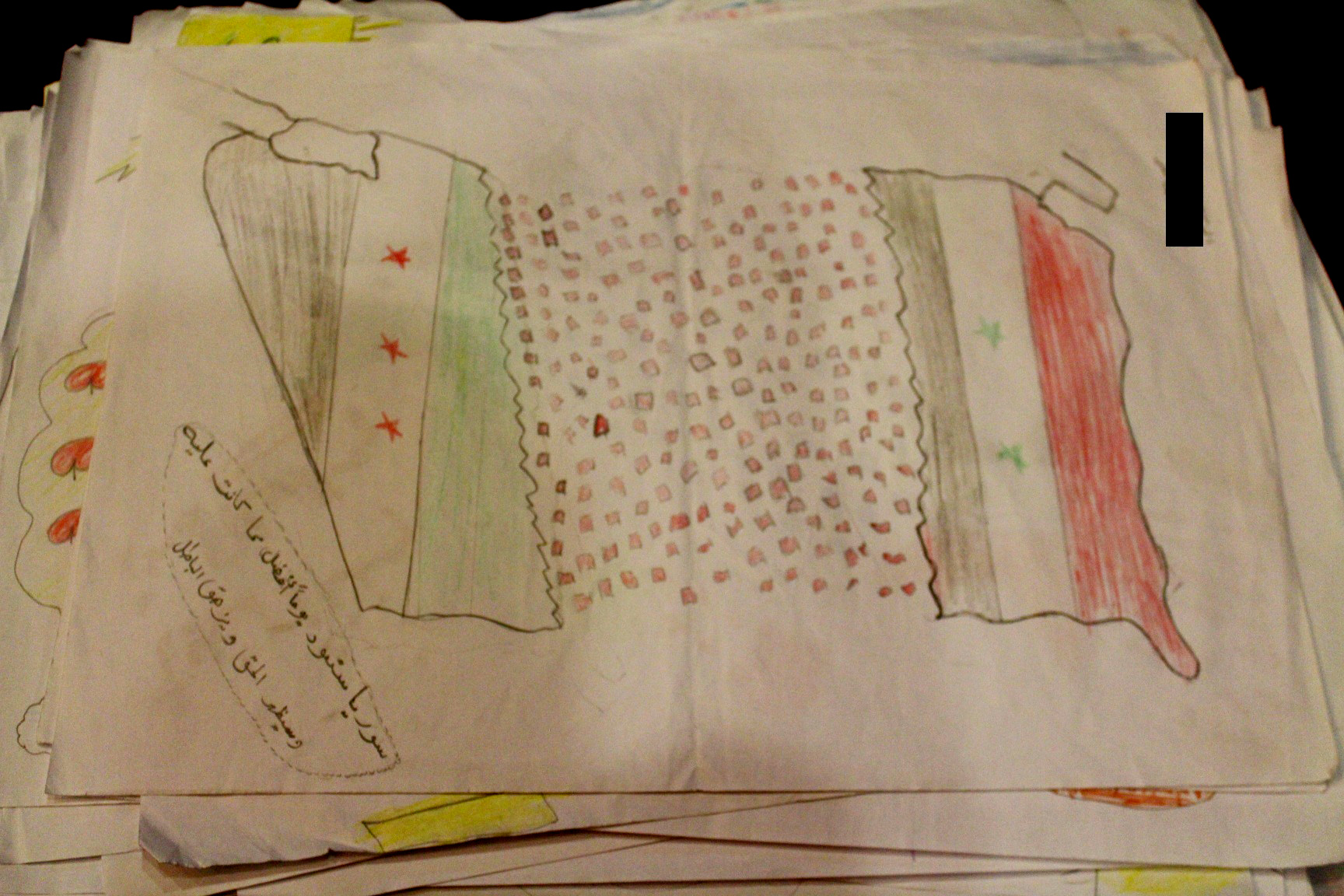
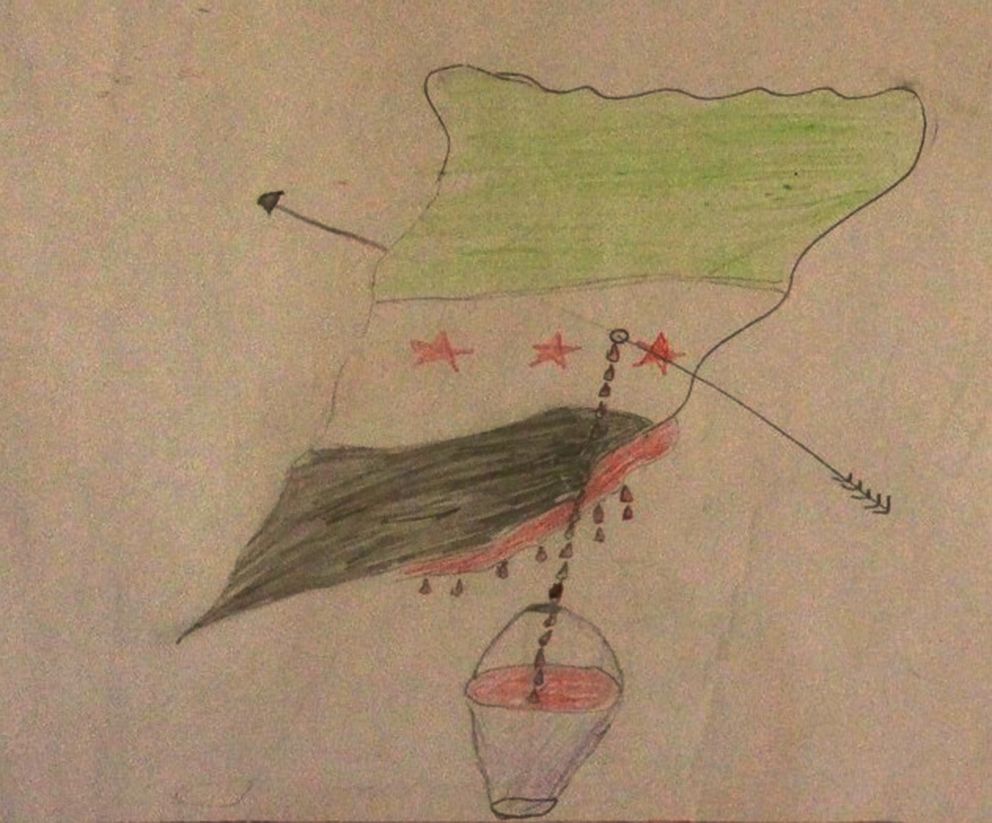
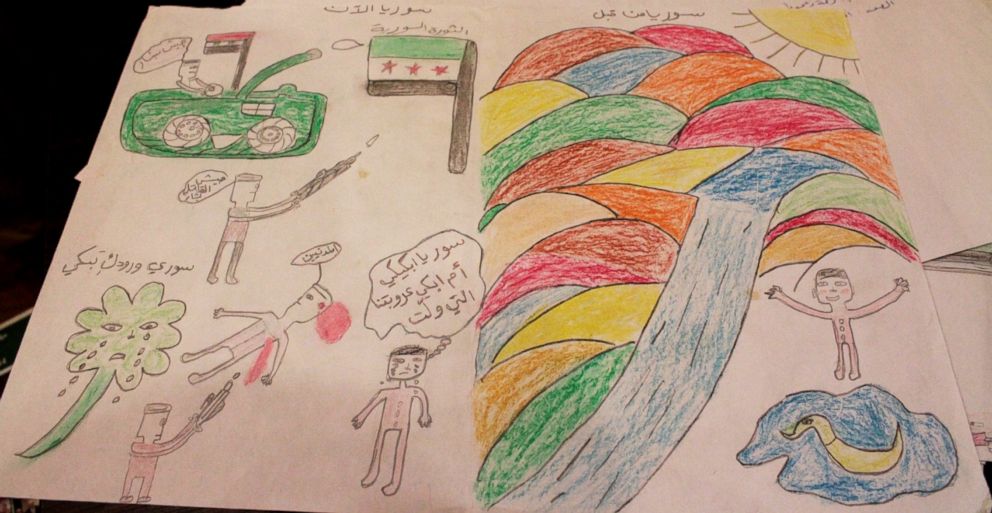
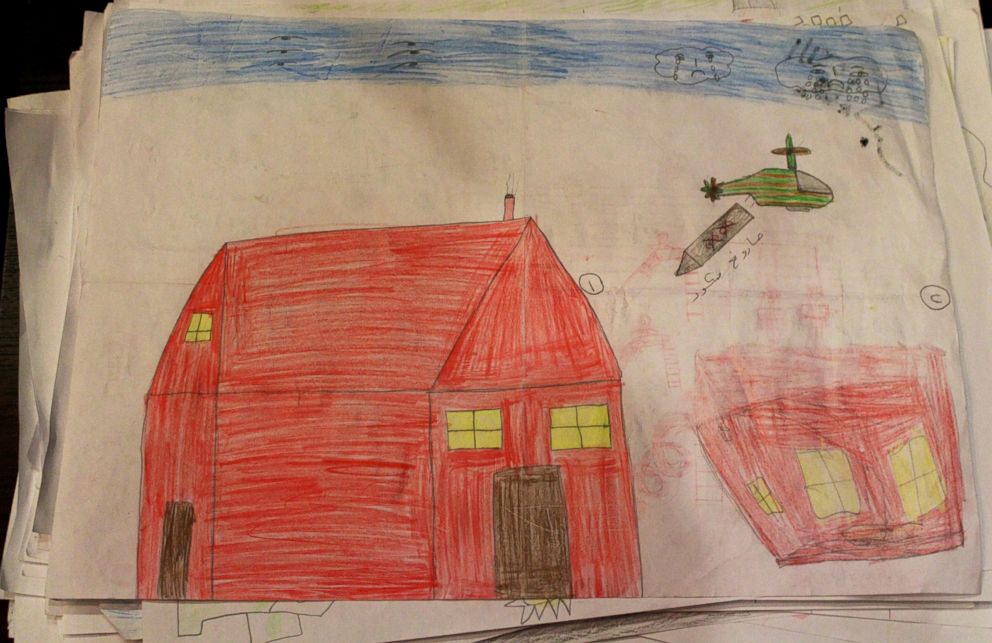
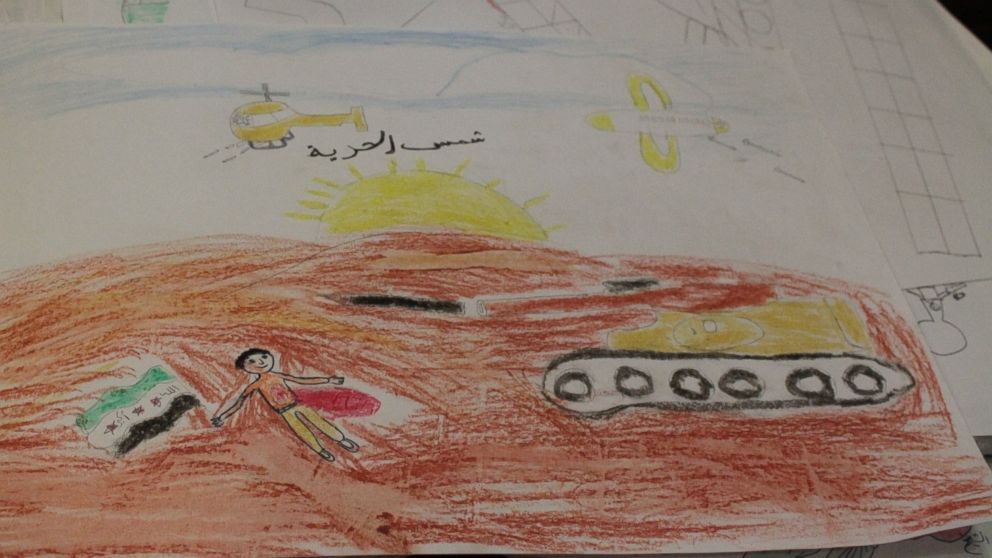
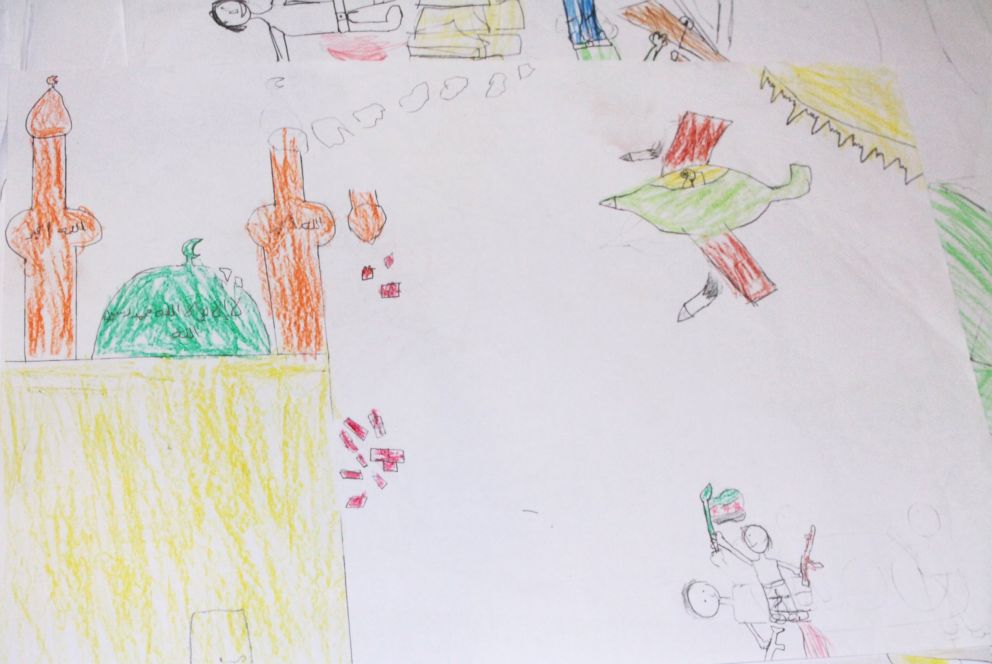
A Yale professor of psychiatry, Jefee-Bahloul, along with his colleague Dr. Andre Barkil-Oteo, were moved by Syrian survivors such as Adam. Jefee-Bahloul said it was the boy who in part pushed him to want to do more to help bring mental health aid to both refugees of the Syrian crisis and those who are still living amid the violence and uncertainty in the country.
In 2013, Jefee-Bahloul, along with his colleague Dr. Andre Barkil-Oteo, both of Syrian descent, started a new program called Syrian Telemental Health Network with the goal of reaching those affected by the Syrian crisis. The network uses an online referral program to connect doctors and mental health providers in Syria, Jordan, Lebanon and Turkey with a global network of specialists willing to provide services for free to those in need.
Jefee-Bahloul pointed out help is needed as most of the field mental health workers, who are treating some of the most traumatized patients, lack an advanced degree or medical degree. The ongoing crisis in Syria has left millions of people devastated, not just physically, but also mentally. Both adults and children are forced to grapple with terror, violence and death.
“The need for these services was clear after talking to many clinicians on the ground who do not have a lot of mental health training and who have almost no supervision,” he said. “We now provide tertiary care--meaning indirect consultations--on highly complex cases that are being taken care of in refugee clinics in Syria and around its borders.”
Their technology is designed to use an encrypted and safe online referral system to connect doctors in North America, Europe, and parts of the Middle East to clinicians working in Syria and its neighboring countries. The data is encrypted to protect the safety of clinicians and patients, especially the mental health workers trying to help the 4.8 million refugees resulting from Syria’s conflict.
They both realized that with their specializations in global health they could improve the lives of individuals who deal with the effects of the massive humanitarian crisis.
"It is hard to estimate how many patients are benefiting from this service," Jefee-Bahloul said. "In the last 18 months, the network completed supervision [for] more than 100 complex clinical cases."
Experts conducting mental health research emphasize the need for providing mental health support around the world, especially in Syria and its bordering countries that have been scarred by years of violence.
“There is evidence that when given the right training and excellent training structure with a focus on job development, people with less intensive training can provide appropriate services,” Theresa Betancourt, an associate professor at the Harvard School of Public Health, explained.
She told ABC News that the work of the network seems promising especially because it links specialists who can train and educate field workers. She said the biggest issue with situations like the one in Syria is addressing the idea of how to “sustainably strengthen the mental health system in countries that are taking on most of the burden.“
Jefee-Bahloul's partner Barkil-Oteo said the internet has been a key tool for sharing needed information across country lines.
“This is a growing trend,” Barkil-Oteo said of telemedicine. “There are many new initiatives that try to use technology to train medical students and doctors. Aleppo University has started a new medical school and their plan is to rely heavily on online lectures.”
The doctors have little aid as they try to keep up with the increasing numbers of patients in need of mental health services, while dealing with attacks on the facilities they work in. All of the mental health referrers have at one time themselves been forced to relocate from their homes. About four of the nine Syrian clinics the network works with have been targeted for attacks and forced to relocate.
This new form of medical education comes in the wake of the destruction of multiple Syrian medical institutions during the past few years. Most of the medical students who were in the process of receiving their training at the onset of the crisis have been left with an unfinished degree.
“Just last weekend, at least three hospitals in Aleppo were bombed,” noted Barkil-Oteo.
Editor's note: Both Jefee-Bahloul and Barkil-Oteo left Yale this year. Barkil-Oteo is now working with Medicine Sans Frontiers to work more closely with Syrian refugees and Jefee-Bahloul is now an assistant professor at the University of Massachusetts.
Zunaira Arshad is a senior at Yale University and a fellow in the ABC News Medical Unit.